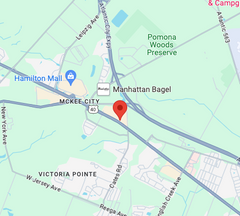Blinds make a stylish statement on any window. And choosing between the different styles of blinds usually depends on the size and style of the window and the design of the room. But for the ideal endurance, the material they're made out of is very important. The two popular materials you'll see the most while shopping are aluminum and wood, and we happen to have all the details to help you decide which one is best for you.
Aluminum Blinds

Pros
Style
Aluminum blinds come in many different styles and colors, as well as finishes. You can choose from neutral tones with a flat finish or bright-colored blinds with a glossy finish, and other similar combinations that go with just about any décor style.
Privacy & Light Blockage
Aluminum blinds provide some privacy when closed but may show shadows and silhouettes within a lighted room. Many aluminum blinds come with a no-holes feature with the ladder holes located at the top of the blind slat. When the blinds are closed, the bottom of each slat covers the holes of the slat below it, blocking light from the room.
Water Resistant
A major advantage of aluminum blinds is that they're resistant to water and moisture. This makes them a good choice for humid spaces like kitchens and bathrooms.
Durable and Affordable
Aluminum blinds can be very durable, especially if you purchase blinds of good quality, like Hunter Douglas. Aluminum blinds are some of the most cost-effective window treatments on the market—a definite plus if you need to cover your windows on a budget.
Cons
Despite their price and trendy upgrades, aluminum blinds do have their drawbacks. Because they're metal, they can be noisy at the window. They also offer nothing in the way of "softening" a window the way a fabric shade can. While Hunter Douglas treats their blinds to repel dust, not every brand does the same; they do tend to collect dust over time, which is most noticeable on the darker colors.
Wooden Blinds

Wooden blinds provide a warm, home-like feel to any space they're placed in. Just like wood floors, it's a material that's sleek and will never go out of style. And of course, there are pros and cons that will help you decide if they're an ideal choice for you.
Pros
Better Aesthetics
Wood is the most traditional and aesthetically pleasing material for blinds. The natural beauty of the woodgrain brings a unique style and warmth to the room. They also have the distinct ability to tie in with a range of the interior décor themes and colors, whether it's a minimal and modern space or a traditional space.
Privacy and Light Blockage
Wooden blinds are especially handy for those requiring total privacy, especially if you live in a busy urban area. They offer an exceptional privacy option versus many other types of blinds. The solid makeup of the wood prevents people from even seeing shapes or shadows through the window. They also do a fair job of blocking light.
Durable
Of course, wooden blinds are also very durable as wood in general is inherently strong, so you don't need to worry too much about damage.
Easy to Clean
It's much easier to clean wooden blinds than it is a soft fabric blind or curtain. The substantial wooden slats can be easily cleaned without removing the whole blind from the window. Consider a microfiber cloth, which grab and retain dust more effectively. Remember, if you use water to clean your wood blinds, dry them thoroughly afterwards to avoid bending.
Cons
More Expensive
Considering all of the types of blinds, wood is the most expensive. Even though there are cheaper varieties as faux wood, original wood can cost more.
Not Moisture Resistant
Due to the natural material they're made out of, wood blinds are not ideal in humid spaces or environments like bathrooms or kitchens. When exposed to moisture, the slats are known to warp.
Heavy
Wood blinds are heavier than other materials and therefore shouldn't be used for larger windows, since breakage can happen.
Faux Wood Blinds

Faux wood blinds are exactly how they sound—they're an imitation of real wood blinds. They're usually made out of a composite PVC/vinyl material.
Pros
Durable and Moisture Resistant
Faux wood blinds are highly durable and won't warp, crack or fade. And because of the composite material they're made out of, they're also moisture resistant, making them a great choice for humid spaces like bathrooms and kitchens.
Easy to Clean and Maintain
Like real wood blinds, faux wood slats can be easily cleaned. All you need is a microfiber cloth to collect dust and a damp cloth to wipe them clean.
Affordable
Faux wood blinds are less expensive compared to natural wood blinds all because of the materials they're made out of.
Cons
The only disadvantage of faux wood blinds is that even though they look like real wood, they're not made from natural hardwood.
As you are now aware of both wood and aluminum blinds, further things to consider are your budget as well as the specifications of the area where you want to install the blind to choose your best option.




















